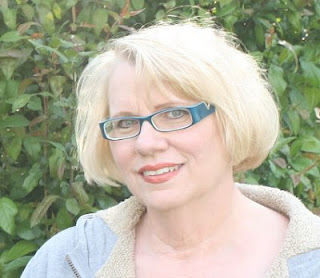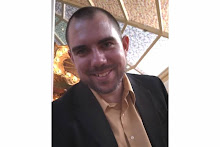 |
| Susan Craig, Making Her Own Odds to Find Happiness |
Overcoming the Fear of Failure: You Can Beat the Odds to Find Happiness
Trying to make my dreams come true seemed an overwhelming task until a statistician taught me how to beat the odds.
I Was in Over My Head
At 36 years old, I was beginning graduate school—not in a user-friendly discipline like sociology or education, but in hard science, where graduate school is a full-time enterprise: total immersion. I was the last person accepted into a cohort of 12 first-year students that faculty considered to be the crème de la crème of the current crop of biology graduates. The other 11 had been trained at the cutting edge of science, had the energy of youth, and were experienced in research.
I, on the other hand, had a degree in education (a B.A., yet) that was 14 years old and could claim not one whit of research experience. My previous life revolved around raising children and teaching elementary school.
How on earth had I gotten in? Somehow, by Divine intervention perhaps, each of my scores on the Graduate Records Exam was above the 90 percentile range. Apparently that was relatively unusual. So, on the last possible day, I was informed that I would be given a chance.
Don't misunderstand. I wanted to be there. It was my dream to become a scientist. But I felt like I'd been thrown into deep water, and the only hope was to keep kicking madly away until I learned how to swim. Less than a week into the program, we were informed that we were required to apply for National Science Foundation Graduate Fellowships. We would fill out some forms, write a personal essay, and design a research project to submit. I was totally out of my depth.
There Was a Better Chance of Winning the Lottery
The word on campus was that no one ever actually got a fellowship. The faculty just thought it was good practice for us to apply. You had a better chance of winning the lottery. That eased my fears a bit, until I spoke to my advisor.
Some of the other first-years had been told by their mentors to waste as little time as possible fulfilling the application requirement. That sounded good to me, but not to my advisor. He made it clear he expected a quality product, "your best effort." Eager to impress him, I worked hard, polishing my essay and proposal until they sparkled—or so I thought.
Try Again
When I brought my work for review, he was not impressed. "Try again," he ordered. "Keep it simple and straightforward."
Back to the drawing board.
Next time, he grunted and told me to have the post-doctoral trainees in the lab critique it to "help polish up the language." So I went to Pat, the lab numbers guru, who also had a reputation as an excellent writer.
No luck. He was too busy to look at my work. So I shopped it around the lab. Every time someone agreed to take a look, the papers came back to me bleeding red with snide remarks and comments. I was falling behind in my other work, as I spent hour after hour trying to please my critics.
At last the day arrived to send off the application. Grateful that the end was near, I printed a fresh, clean copy of the last draft and slipped it into the envelope. Just as I was about to seal it shut, Pat strolled into the student office. "Did you still want me to look at that?"
No, my mind screamed. I want to mail it and be done. "Yeah, thanks," said my traitorous mouth, and I pulled the sheets out.
After a 15-minute eternity he came back, smiling. "I hope it's okay that I marked on these." I saw streaks of red like open wounds on the once-pristine pages.
"It's fine," I lied.
The Moment of Truth
Pat nodded in acknowledgement and left. That was my moment of truth. I wanted nothing more than to crumple up those sheets and throw them away. Or stuff them into the envelope, red and bleeding as they were. We were required to enter, not to win.
As I struggled with myself, the door to the office opened and Pat stuck his head back in. "Funny thing about statistics," he said. "The odds of an outcome only apply to the group, not to the individual." He nodded his head at me and left.
Puzzled, I sat down at the computer and began making revisions—again. Half an hour later, I carefully locked the office door, then printed out a clean copy of the application and sealed it immediately in its envelope. Racing to the post office, I got it stamped with 40 minutes to spare.
It took weeks of hard thinking before I understood what Pat had said. If there is only a 10 percent chance of success in a venture, this does not mean you are at the mercy of random chance. It means that 90 percent of the group will give up, hedge their bets, or hold back from giving the task their all.
The Odds Tell You How Many People Put in the Effort Required
For the individual, success or failure with any specific task is clear cut. Either you make it or you don't. And success is always determined, not by the odds, but by a combination of work and ability—heavily weighted in favor of work. In essence, the odds just tell you how many people in a group were willing to put in the effort required to succeed.
Is this simple? Yes.
Is it easy? Not in my experience. I've always found it difficult to make myself actually put forth my best effort.
Is it worth it? Only you can answer that question.
So, did I get a fellowship? Actually, yes, I did. All the hard work paid off. But the part that meant the most wasn't the funding. It was learning how to beat the odds.
*****
Put Extra Work Into Your Query Letter!
Just as with Susan's example, a little extra work on improving your query letter can create an amazing results for your writing career (and your bank account). During the 4-week Writing the Query Letter course offered by Writer's Digest University, writers will learn how to dig deep and turn out query letters that get results.
Click here to get a seat in the next query letter course.
*****
If you think you have a great life changing moment to share (and you probably have several), click here to learn how to get the conversation started. I'm sure if you think it's important, I may too.
*****
Connect with me on Twitter, Facebook, and LinkedIn. Plus, sign up for free e-mail updates from this blog in the top right-hand corner of the page.
*****
Check out previous posts from the Life Changing Moments Series:
